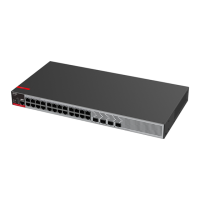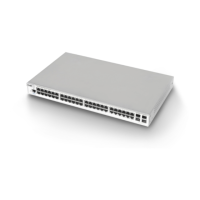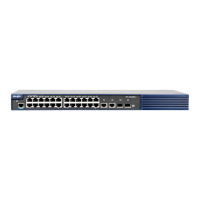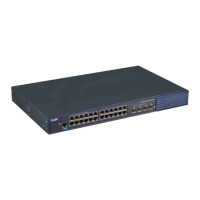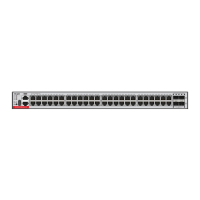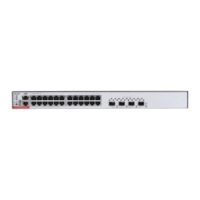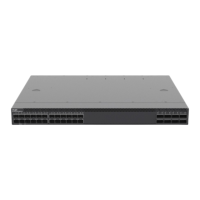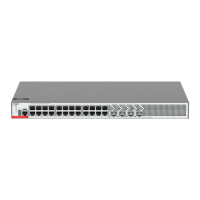Command Reference OSPFv3 Commands
option means that it is not allowed to perform the GR helper function for any device in GR.
The GR helper does not perform the network change detection by default. The convergence is not
performed again until the GR is implemented even if the network changes. Use the
strict-lsa-checking orinternal-lsa-checking command to enable the device to detect the change of
network topology during the GR. The former checks any LSA (types 1-5,7) that stands for the network
information, the latter checks the LSA that stands for the AS inner-area route. In the large scale
network, it is not recommended to enable the LSA check option because the partial network changes
trigger the ending of the GR, decreasing the convergence speed of the entire network.
The following example disables the GF helper function of the OSPFv3 instance 1 and modifies the
topology change detection policy.
Ruijie(config)# ipv6 router ospf 1
Ruijie(config-router)# graceful-restart helper disable
Ruijie(config-router)# no graceful-restart helper disable
Ruijie(config-router)# graceful-restart helper strict-lsa-checking
Use this command to enable the interface to participate in the OSPFv3 routing process. Use the no
form of this command to restore the default setting.
ipv6 ospf process-id area area-id [ instance instance-id ]
no ipv6 ospf process-id area [ instance instance-id ]
OSPFv3 area in which the interface participates.
It can be an integer or an IPv4 prefix.
Configures the specific OSPFv3 instance on the interface.
This function is disabled by default.
Interface configuration mode.
You can use this command to enable the OSPFv3 on an interface, and then configure the OSPFv3
process with ipv6 router ospf. it will be automatically started after this command is used., it will be
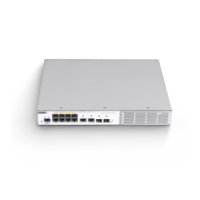
